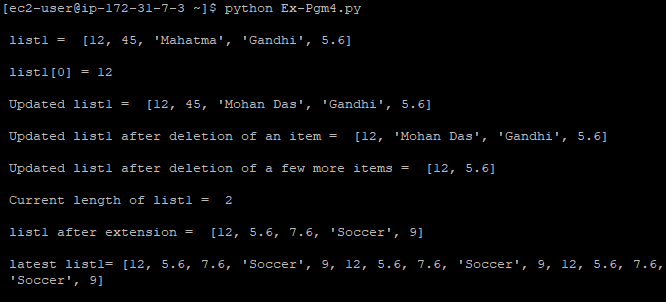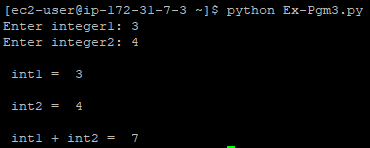This blog assumes that you have a Linux machine with Python already installed.
If you don't, then you can use an AWS cloud based image that has Python. For help, refer to my blog
I am using Python 2.7 for this tutorial.
SETs
Set is a data type created to emulate the mathematical concept of sets.
Def: Set is an UNORDERED collection of UNIQUE objects.
Sets do not support indexing. Meaning a single object of a set cannot be accessed.
Example Program - 8:
**************************************************************
#! /bin/python
a = set ([1,2,3,4])
b = set(['Harsha',2,3,"string1"])
c = a & b # Intersection.
d = a | b # Union
e = set([2,3,3,4,4,5,6])
print "\n a = ", a
print "\n b = ",b
print "\n c = ",c
print "\n d = ", d
print "\n e = ",e # Check out the output.
f = a.intersection(e) # This is equivalent to f = a & e
print "\n f = ",f
a.add("Numbers") # Adds the object to the set
a.discard(4) # Removed the object from the set
print "\n a = ",a
g = a - b # Difference.
print "\n g = ",d
**************************************************************
EXERCISE - 5
Write a program that has at least 4 sets and performs all set operations including comparison. Ex: Is set A super set of set B?
FROZENSETs
A frozen set is an IMMUTABLE set.
Syntax is :
a = frozenset([1,2,3])
The add method is not available on frozensets.
EXERCISE - 6
Write a program with frozensets and explore what can and cannot be done with them. Do a bit of research :)






